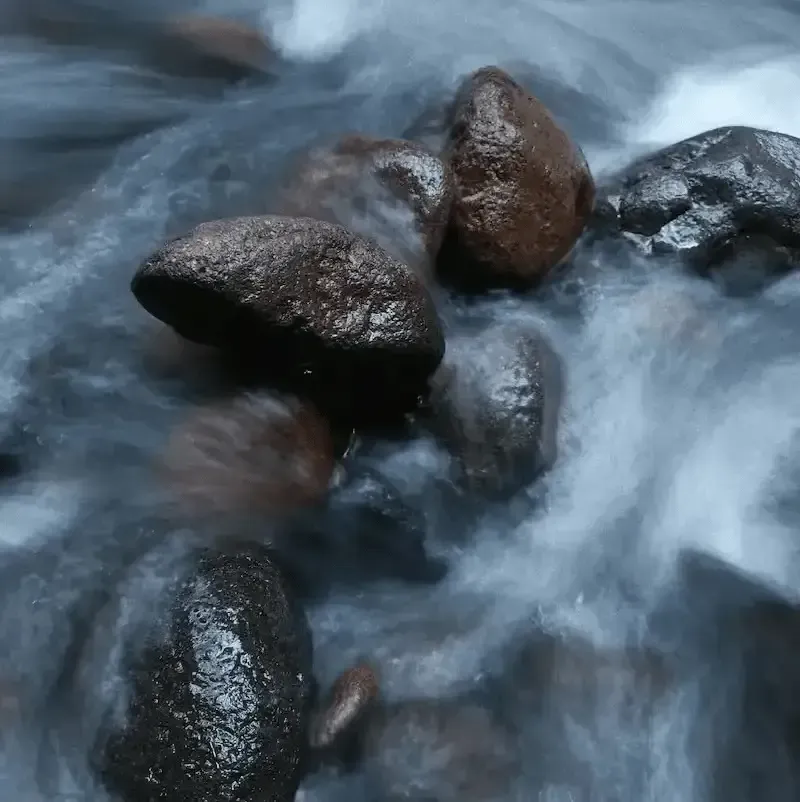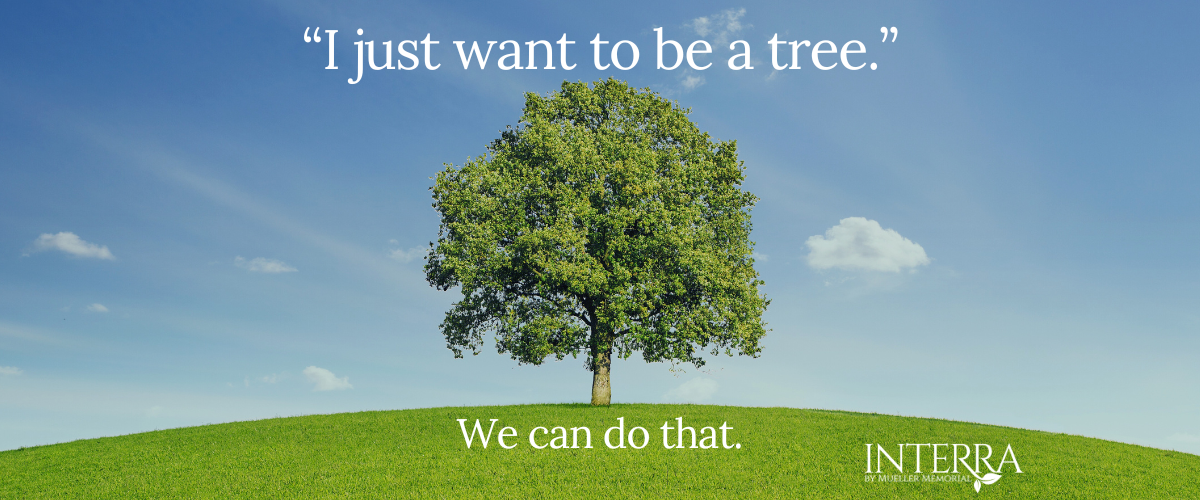A Comparison of Eco-Friendly Funeral Options | Interra Green Burial
Water Cremation
vs. Flame Cremation:
A Comparison of Eco-Friendly
Funeral Options

In the last few years the concept of a green funeral has produced significant interest. As society becomes more environmentally conscious, many are exploring eco-friendly funeral options. Among these, water cremation and flame cremation stand out, each with its unique approach to handling final disposition. This article aims to clarify the differences between these two methods, offering insights into how Interra Burial's services align with the growing demand for green burial services and flame cremation alternatives.
A Small Disclaimer
Final disposition methods, whether referencing green burial, composting, or cremation, are practical and scientific topics and as such this article is going to momentarily set aside the more emotional elements of loss and focus specifically on providing honest and respectful descriptions of how cremation works.
What is Water Cremation?
Water cremation, also known as aquamation or alkaline hydrolysis, is a process that uses a solution of 95% water and 5% hydroxide to accelerate the natural decomposition process. This method is seen as an eco-friendly alternative to traditional cremation, as it mimics the natural processes that occur when a body is buried but in a shorter amount of time. In water cremation, the body is placed into a vessel with the water solution. The solution is heated using electricity and moved to flow which facilitates the breakdown of soft tissues. The process, much like in traditional cremation, leaves behind only the solid bone tissue, which is then dried, processed into fine “ashes” and returned to the family in an urn or other receptacle.
Flame Cremation Explained
The more traditionally used method of flame cremation involves igniting fuel, usually natural gas or propane, to cremate the body at high temperatures in specially designed cremation equipment. This process reduces the body to dry bone tissue through combustion, evaporation, and oxidation. The intense heat incinerates almost everything, including dental fillings, leaving behind only certain metal implements like replaces joints but mostly bone fragments. These fragments are then processed into a fine powder, commonly referred to as ashes and returned to the family.
Environmental Impact
One of the main differences between water cremation and flame cremation lies in their environmental impact. Water cremation is often touted for its eco-friendly nature. It uses significantly less energy than flame cremation, reducing the carbon footprint associated with disposing of human remains through cremation. It also captures the carbon from the body in the water and allowing that to return to the ecosystem rather than introducing in into the atmosphere. Traditional flame cremation, on the other hand, requires burning substantial fossil fuels which releases carbon dioxide from the fuel, and the roughly 18% of the body that is carbon, directly into the atmosphere.
Benefits of Aquamation
Water cremation offers several benefits over traditional flame cremation. First and foremost, it is a more environmentally friendly option. The process does not directly emit fossil fuel exhaust and uses 90% less energy, thus reducing the overall carbon footprint. Additionally, the liquid that remains when the process is complete is sterile and contains the building blocks of life, amino acids, sugars, peptides, and captured carbon, which are processed with waste water and safely reintroduced to our natural river system.
Ecological Burial and Cremation Alternatives
For those considering ecological burial options, water cremation is an excellent choice. It aligns with the principles of natural burials, which emphasize returning the body to the earth in a manner that aids in natural decomposition. Water cremation complements these natural processes, offering a method that is both respectful to the deceased and the environment.
Comparing the Cremation Processes
When comparing water cremation to flame cremation, it's important to consider the entire cremation process. Flame cremation is a faster process, typically taking two to three hours, while water cremation generally takes about 6-8 hours. This time difference can be attributed to flame cremation using about five times the heat needed for an aquamation. It is also worth noting that aquamated remains, or “ashes,” are about 20% greater in volume than flame cremation ashes, and aquamated remains are brighter white and have a finer consistency.
Funeral Homes and Green Burial Services
By offering water cremation as part of our green burial services, Interra Green Burial by Mueller Memorial is presenting families the opportunity to choose an environmentally friendly option that aligns with their values, while still providing the comforting and familiar final result of receiving ashes. The family can then decide what to do for permanent memorialization. The ashes can be scattered, buried, placed in jewelry, added to a memorial forest, or any placement the family sees fitting.
Water Cremation: The Future of Eco-Friendly Funerals
Water cremation represents a significant step forward in the evolution of eco-friendly funeral practices. By reducing the environmental impact of cremation and aligning with the principles of natural burial, water cremation offers a sustainable option for those looking to minimize their ecological footprint.
In Conclusion
As we become more aware of our environmental impact, the choices we make in life and death become increasingly important. Water cremation offers a respectful, environmentally friendly alternative to traditional flame cremation. By understanding the differences between these two processes, families can make informed decisions that align with their values and contribute to a more sustainable future.
FAQs
How Does Water Cremation Work? In water cremation, the body is placed in a vessel filled with a water and alkali solution. The liquid in the vessel is then heated, but at a drastically lower heat than used in flame cremation. The combination of the heat, fluid movement, water, and alkali breaks down the soft tissue, leaving behind the bone material and a sterile liquid.
What is Water Cremation and How Does It Differ from Flame Cremation? Water cremation reduces a body using water and alkali, whereas flame cremation uses combustible fossil fuels. Flame cremation involves reducing the body at very high temperatures, and water cremation uses roughly five times less heat, but both result in processed bone material or “ashes,” being returned to the family in an urn or receptacle.
Is Water Cremation More Environmentally Friendly than Flame Cremation? Water cremation is generally considered more environmentally friendly than traditional flame cremation. It uses electricity to heat the solution and doesn’t directly emit fossil fuel exhaust into the atmosphere. Aquamation also captures the carbon from the body in the solution producing a sterile liquid that can safely be returned to the wastewater system.
Is Water Cremation More Expensive than Flame Cremation? The cost of water cremation can vary depending on location and provider. In some cases, often it is more costly than traditional flame cremation due to the specialized equipment required and the longer processing time. However, at Interra Green Burial we want to encourage families to use this ecological cremation option, so an aquamation without services is less than Mueller Memorial’s flame cremation.









